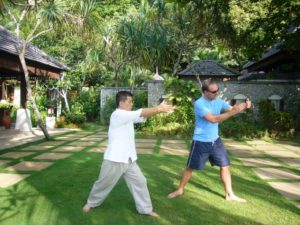By Timi Gustafson, R.D.
While regular physical activity has long been regarded as an important component of healthy aging, its impact on mental health has remained less explored — until now.
 For these studies, researchers from the United States, Canada and Japan conducted six to 12 month clinical trials with focus on potential benefits of different types of exercising, including weight lifting, aerobics and balance-stretching training, for maintaining cognitive abilities at old age.
For these studies, researchers from the United States, Canada and Japan conducted six to 12 month clinical trials with focus on potential benefits of different types of exercising, including weight lifting, aerobics and balance-stretching training, for maintaining cognitive abilities at old age.
“People who are focused on cognition largely never watch people move,” said Dr. Stephanie Studenski, a geriatrician at the University of Pittsburgh who did not take part in the study, in an interview with the New York Times. “The tests are all done sitting down.”
Simply by observing how older people walk could provide doctors with an additional tool for diagnosing impairments such as Alzheimer’s disease.
Footnote: The AAIC is the world’s largest of its kind and is sponsored by the Alzheimer’s Association, the world’s leading health organization in Alzheimer care, support and research.
———————————————————————————–
 Timi Gustafson, RD, LDN, FAND is a Registered Dietitian, health counselor, book author, syndicated newspaper columnist and blogger. Timi completed her Clinical Dietetic Internship at the University of California Medical Center, San Francisco. She is a Fellow of the Academy of Nutrition and Dietetics, an active member of the Washington State Dietetic Association, and a member of the Healthy Aging, and Wellness Nutrition practice groups. USA.
Timi Gustafson, RD, LDN, FAND is a Registered Dietitian, health counselor, book author, syndicated newspaper columnist and blogger. Timi completed her Clinical Dietetic Internship at the University of California Medical Center, San Francisco. She is a Fellow of the Academy of Nutrition and Dietetics, an active member of the Washington State Dietetic Association, and a member of the Healthy Aging, and Wellness Nutrition practice groups. USA.
Reprinted with the author’s permission.




